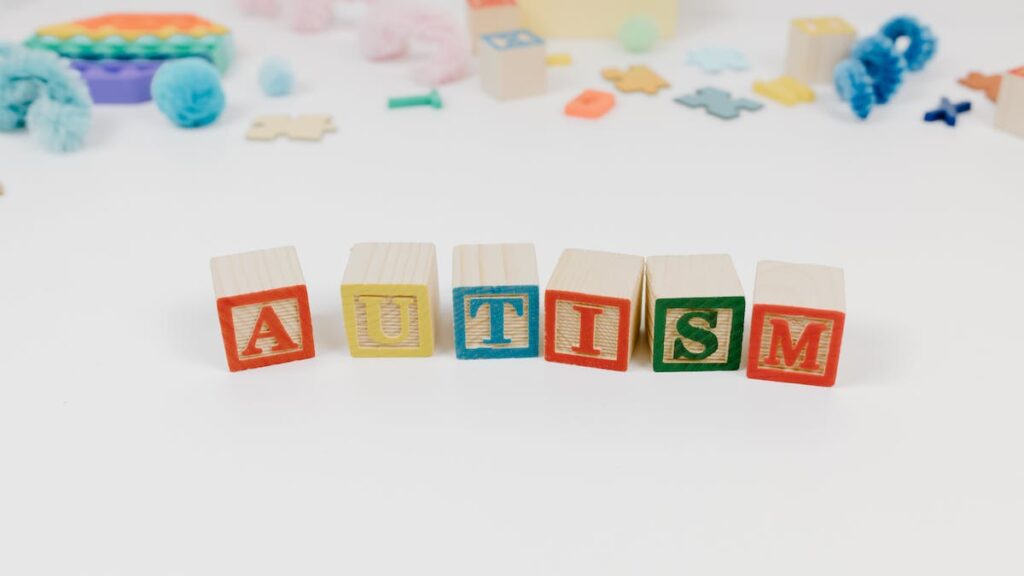
Months ago, her nonverbal autistic son communicated with her for the first time by saying, “Kiss.” This woman’s son repeated the word, expressing a desire for a kiss. She felt elated. He has about a dozen words he regularly uses to verbally request something; they are almost all foods.
Now, here was “kiss” — the greatest blessing. She embraced him and planted a huge smooch on his cheek. “Kiss,” he said again. “Kiss,” and she gladly obliged. “I’ll never get tired of hearing that,” she told him. “You can have as many kisses as you want whenever you want.”
Thirty minutes and hundreds of kisses later, she responded to his “Kiss!” with, “Mama needs a break. All done.” She redirected him to some markers and a drawing pad and felt like a monster. It wasn’t the first time.
“Get off me! Stop it!” She has said at 1, 2, and 3 o’clock in the morning, desperate for sleep as he claws at her arms and legs, trying to wake her up to play. Sleep issues are common among autistic children, and her son is no exception. If she manages to fall back asleep, she wakes up with a hangover of shame.
ALSO READ: Mother of Virginia 6-Year-Old Who Shot a Teacher Bags Two Years in Prison for Child Neglect
She showers him with hugs and kisses, earnestly attempting to compensate for her middle-of-the-night rejections, fearing she might lose this connection with him due to her perceived lack of gratitude for his desire to touch.
Without the benefit of words, touch is one of her son’s primary forms of communication. He signals, “Come with me,” by pulling on her arm and guiding her to where he wants her to go. To express “I’m scared and stressed,” he grabs her face and repeatedly presses it into his cheek.
If she regulates herself effectively, she can take a deep breath, relax, and persuade him to do the same. When she is exhausted, which is often, she may sometimes say, “That hurts. Please don’t.”
POLL—Should Public Schools Include Critical Race Theory and Sex Education in Their Curriculum?
Any rejection of his touch feels like a failure. She thinks of all the autistic children who recoil from any touch and those who are physically aggressive toward others out of their frustration at being unable to communicate.
She considers their mothers and imagines how happy they would be to trade places with her. She doesn’t permit herself to be touched out without beating herself up.
She feels ashamed that there are times when she wants her body to herself. She wonders if mothers of neurotypical children ever feel the same. Then she remembers being ten and sitting on her mother’s lap in the middle of the kitchen, hugging her tight because she was scared.
ALSO READ: Civil Rights Activist Gets Childhood Home Back 80 Years After Racist Mob Forced Her Out
She recalls her mother breaking away and saying, “OK, that’s enough,” before getting up. It stands out in her memory because it only happened once — the one time her mother had to say she needed her body to herself.
She used to think of it as her mother failing her. Now that she’s a mother, she understands how her mother felt. She wants to be open to him communicating in any way he can, any time he can. She desires to have endless patience instead of setting boundaries.
However, she also acknowledges that exhaustion gets the best of her more days than it doesn’t, and that’s not likely to change any time soon. The best she can do is look for ways to forgive herself today and hope to do better tomorrow.
You Might Also Like:
NRA Leader Wayne LaPierre Steps Down Amid Corruption Case
Loudoun County Students Protest Against Bathroom and Locker Room Policy
Advocates Argue School Cell Phone Bans Are Impractical
Travel Companies Busing Immigrants to Democrat Cities Evade Mayors’ Rules and Fines
Over 200 Service Members Sign Letter Against Military Leaders Over COVID-19 Vaccine Mandate
